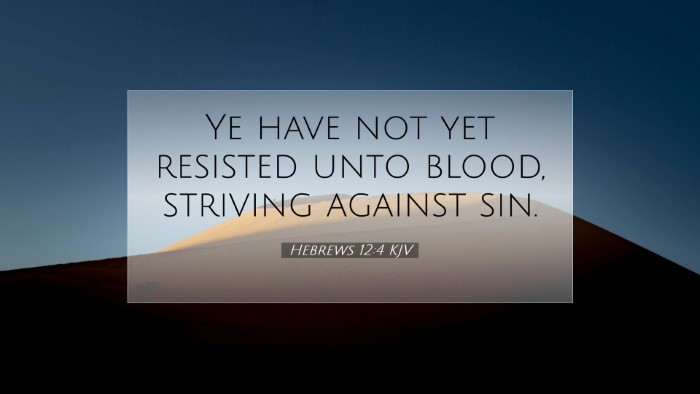Old Testament
Genesis Exodus Leviticus Numbers Deuteronomy Joshua Judges Ruth 1 Samuel 2 Samuel 1 Kings 2 Kings 1 Chronicles 2 Chronicles Ezra Nehemiah Esther Job Psalms Proverbs Ecclesiastes Song of Solomon Isaiah Jeremiah Lamentations Ezekiel Daniel Hosea Joel Amos Obadiah Jonah Micah Nahum Habakkuk Zephaniah Haggai Zechariah MalachiVerse
Hebrews 12:1 Hebrews 12:2 Hebrews 12:3 Hebrews 12:4 Hebrews 12:5 Hebrews 12:6 Hebrews 12:7 Hebrews 12:8 Hebrews 12:9 Hebrews 12:10 Hebrews 12:11 Hebrews 12:12 Hebrews 12:13 Hebrews 12:14 Hebrews 12:15 Hebrews 12:16 Hebrews 12:17 Hebrews 12:18 Hebrews 12:19 Hebrews 12:20 Hebrews 12:21 Hebrews 12:22 Hebrews 12:23 Hebrews 12:24 Hebrews 12:25 Hebrews 12:26 Hebrews 12:27 Hebrews 12:28 Hebrews 12:29

